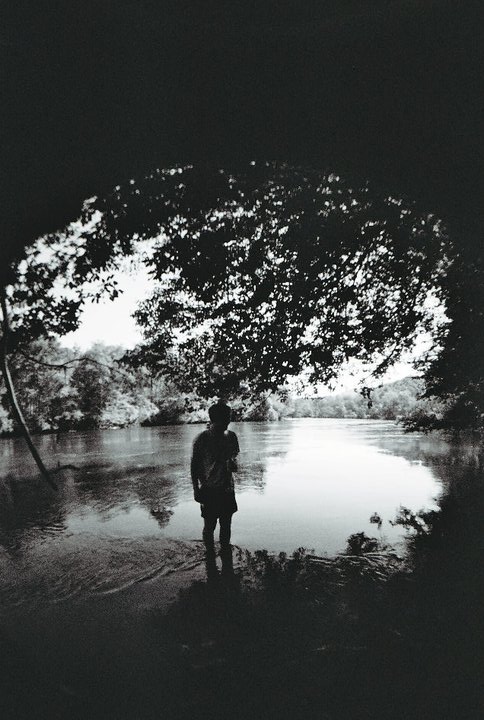The troubled, tortured musician is not a new concept. Elliott Smith sang of his inability to overcome both chemical imbalances and chemical addictions, Jeff Buckley elegantly shrieked at something he simply could not stretch far enough to reach, and Jeff Mangum spilled his frustrations and disturbed musings out in a lilting, strained voice. Bradford Cox, frontman of the polarizing band Deerhunter, is next in line.
With Deerhunter, Cox presented his demons to the listening audience in an aggressive, caustic manner. Their songs were filled with morbid imagery, sheets of noise, and an overall sense of dread and disquiet. As Atlas Sound, the name of his solo project, Cox attempts to quietly exorcise these demons.
LTBLTWCSBCF is awash in ghostly static and cavernous reverb, creating a very dreamlike atmosphere designed to both comfort and unsettle in the same moment. His vocals throughout the record are sung in a whispery, sleepy manner, snaking through unidentifiable instrumentation and impenetrable white noise. Each breath taken is left in the vocal track, as is every hard enunciation and offkey slip-up. This does not detract from the force or meaning behind each lyric, rather, it adds a sense of pure emotion lurking beneath the surface, comparable only to Vespertine era Bjork.
Cox uses his unique vocal style to craft songs that capture alienation at its most affecting. After the triple whammy of the first three beautifully fleshed out tunes, "On Guard" appears from the ether as an ambient meditation on awkward social situations. Cox's voice floats between handclaps, tambourines, and bleeps and blips, never really going anywhere, but never quite remaining still. The repeated phrase, "always on guard," pops up out of the haze as a warning to the rest of the sounds, never letting them boil over into cacophony. It's a theme song for those who can never relax but can always appear to be.
Later in the record, the social recluse is given a chance to break through his wall during "Cold As Ice." The sunny guitar loops and jingly percussion are the cocoon breaking open, but something keeps Cox from turning his face into the sunlight. His use of reverb seems quite deliberate, as certain phrases decay forever, and some snap back into reality almost as quickly. Near the end of the song, the decaying vocals create an image of one's breath hanging in the air, freezing and reforming the protective wall.
From this point on, Cox's voice shows up less and less, suggesting that even though he is trying to move on from whatever tortures him so, he cannot move past a certain point. "Ativan" has him retreating farther into the cold background, singing in an almost nonchalant chant about sleeping constantly. The title track finishes the record, painting the soundtrack to the dream Cox has just slipped into and may not rise from. It's beautiful and heartbreaking, fragile with a prickly outer shell.
LTBLTWCSBCF may not have fully exorcised Bradford Cox's demons, but it has successfully trapped them in a haunting, beautifully rendered piece of work. It's a snapshot of a tortured soul in a truly captivating record, not in a trainwreck-you-can't-look-away-from way, but a body-decaying-and-fertilizing-ground-where-flowers-now-grow way.
Tuesday, February 12, 2008
Subscribe to:
Post Comments (Atom)

1 comment:
That was really well done! Me gusta mucho.
Post a Comment